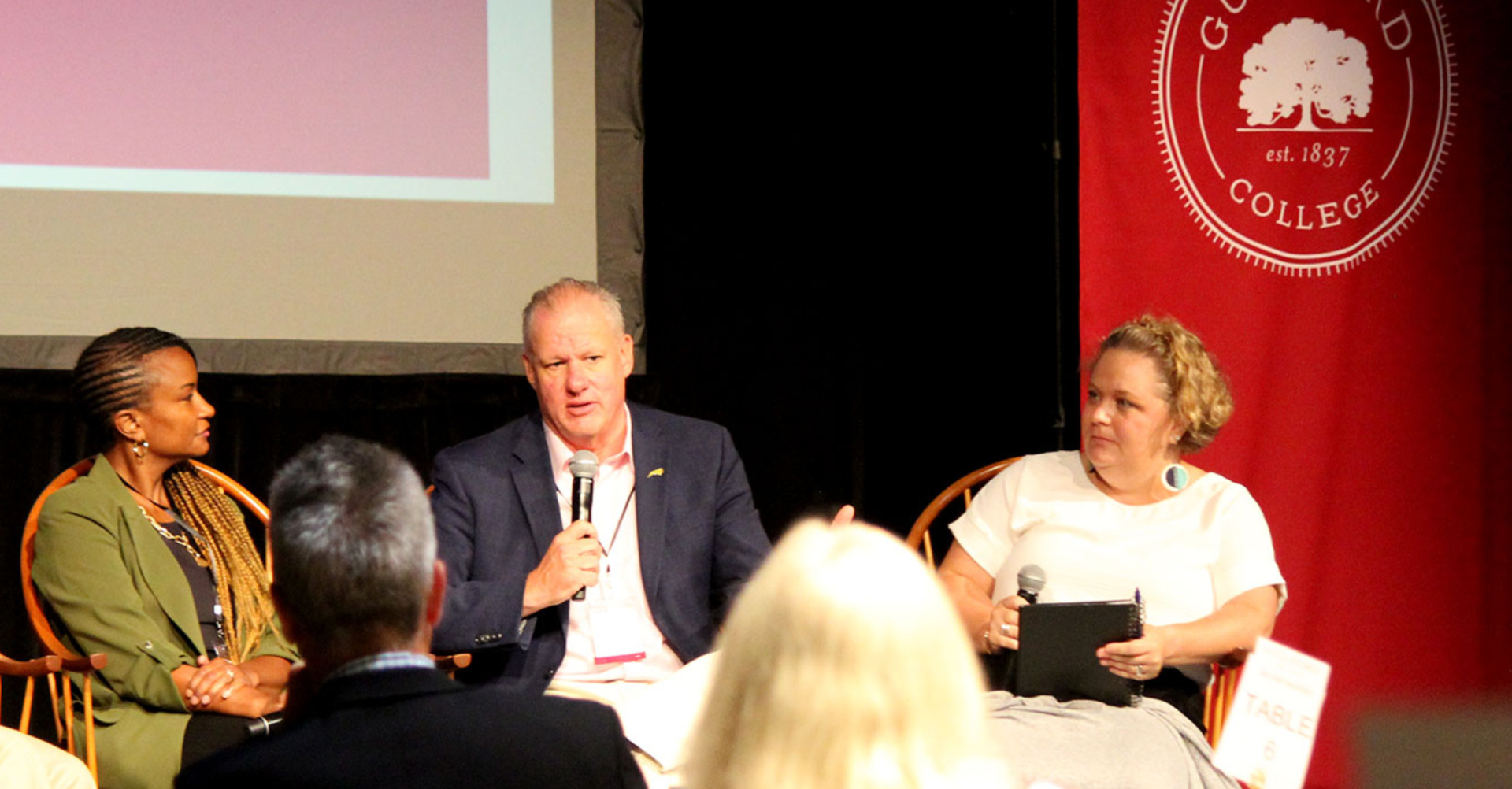
Friday's final day of Dialogues focused on the importance of public transportation, affordable housing and supporting formerly incarcerated inmates in economic inclusion programs.
“You cannot concentrate impoverished individuals and expect amazing economic mobility outcomes. It's like putting a bunch of bad kids in the same class. That is a disaster waiting to happen. We couldn't have all the same kids in the same class because they feed on each other. The same happens with concentrated poverty.”
Affordable housing and jobs that provide a living wage are the first solutions municipal leaders pursue in efforts to close the economic divide in their communities. But one solution often overlooked by municipalities is an upgrade to reliable public transportation.
On the second day of Guilford Dialogues, a panel of speakers pointed out that public transportation is just as important. People in wealthier neighborhoods, which have access to their own cars, can navigate the city with ease, whereas people in poorer neighborhoods often have access only to a narrow slice of the city.
Mark Kirstner, director of planning for Piedmont Authority for Regional Transportation, said public transportation agencies can do a better job of expanding routes across a city. “When you have limited mobility options, it’s not just about getting to the social services department or a hospital, it is about getting to other locations as well,” Mark told Dialogues attendees in Sternberger Auditorium on Guilford’s campus.
“You can't get out to the (grocery store). You can't get out to all the jobs that are along I-40. You can't get down to the Toyota battery plant. If I don't have an economic opportunity that everyone else has, I'm still stuck,” he said.
The lack of reliable public transportation can hinder residents’ ability to work and rise above poverty, said Aimy Steele, CEO of the New North Carolina Project and a former teacher and principal. Since those residents are limited to the small number of jobs accessible by public transportation, she said it expands the poverty cycle.
“You cannot concentrate impoverished individuals and expect amazing economic mobility outcomes, Aimy said. “It's like putting a bunch of bad kids in the same class. That is a disaster waiting to happen. We couldn't have all the same kids in the same class because they feed on each other. The same happens with concentrated poverty.”
The third Guilford Dialogues, which focused on building strategies for economic inclusion in communities, wrapped up Friday but not after another series of lively panel conversations on topics of economic inclusion and mobility.
One of those conversations involved bringing formerly incarcerated people into a community’s economic prosperity. Attendees heard about formerly incarcerated people’s struggles – and successes – in reentry into society. Victor Vincent Jr. ‘11, a former inmate who now helps other inmates in their reentry into society, said most people go through the reentry process with little to no preparation, planning, or support and face a barrage of rules that turn everyday activities into trapdoors to incarceration. But because many people have no idea what it’s like to live under supervision, it’s easy for the media, politicians and law enforcement to capitalize on the fiction that recidivism rates reflect personal – and not institutional – failure.
A group of formerly incarcerated people helped attendees understand the obstacles many inmates experience through a reentry simulation. Participants in the simulation had only a few minutes to navigate life on probation while adhering to the terms of a typical former inmate’s release. Unfortunately, three violations of the “inmates” probation conditions sent them back behind bars.
Each participant began the simulation with a unique experience – employed or unemployed, no identification or housing – and instructions to meet with your probation officer at regular intervals. But within seconds of your journey, the simulation randomly changes your life circumstances — many of which pose imminent threats to your freedom. Your money or shelter disappears quickly, of course, as various fees and everyday costs start to pile up.
Victor told attendees non-criminal or “technical” violations like attendees experienced are a significant engine of incarceration for people on probation and parole. “Reentry rules can be so hard to overcome and involve so many factors outside your control that failure seems inevitable,” he said. “We need to change these barriers and make it easy to be part of the workforce. A majority of (inmates) the last place they want to go is back to prison. They want a good job and be part of society again. Let’s help them.”
Dialogues participant Erica Parker, an independent small business loan officer in Greensboro, said she attended Dialogues to learn more about her community and neighbors. “I know my experiences will take me far in life, but if I couple my experience with experiences of others, I can make a really impactful change in my community. That’s what I found so meaningful about Dialogues is the conversations complete strangers can have with each other and learn from each other.”
President Kyle Farmbry enjoyed sitting in on many of the table conversations between attendees – a hallmark of Guilford Dialogues. “People are talking about things and building connections and thinking about things they’ll do on their own or in networks that they’ve developed here,” said Kyle. “That’s what I envisioned Dialogues being from the start. I never wanted this to be about people coming in and delivering a bunch of academic papers. I wanted it to be about conversations that turn into relationship building that turns into something bigger for our communities.”

